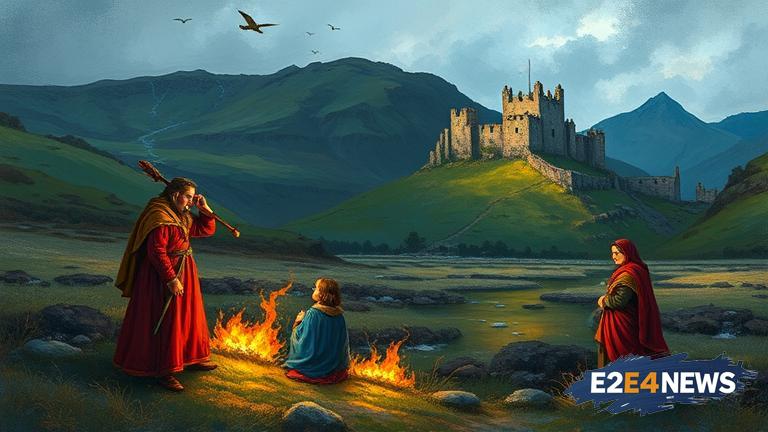Scotland has a long and storied history, with a rich cultural heritage that is steeped in tradition and folklore. The country’s unique culture is being kept alive through the art of storytelling, with Scots sharing their tales and experiences to preserve their heritage. From the Highlands to the Lowlands, Scotland’s diverse regions are home to a wealth of stories, legends, and myths that have been passed down through generations. The country’s strong oral tradition has played a significant role in shaping its cultural identity, with stories of brave warriors, mythical creatures, and legendary heroes captivating audiences for centuries. The art of storytelling has been a cornerstone of Scottish culture, with tales of love, loss, and adventure being shared around campfires, in pubs, and at family gatherings. Scotland’s cultural traditions are not just limited to its stories, but also its music, dance, and art. The country is home to a thriving arts scene, with numerous festivals and events celebrating its rich cultural heritage. The Edinburgh Festival Fringe, for example, is the largest arts festival in the world, showcasing a diverse range of performances, from theater and dance to music and comedy. Scotland’s cultural traditions are also reflected in its cuisine, with popular dishes such as haggis, neeps and tatties, and Cullen skink being enjoyed throughout the country. The country’s stunning landscapes and picturesque towns and villages have also inspired countless stories, poems, and songs, with the rugged beauty of the Highlands and the rolling hills of the Lowlands providing a unique backdrop for artistic expression. In recent years, there has been a resurgence of interest in Scotland’s cultural heritage, with many Scots seeking to learn more about their country’s history and traditions. This has led to an increase in cultural events and festivals, with many communities coming together to celebrate their shared heritage. The Scottish government has also launched initiatives to promote the country’s cultural heritage, including the establishment of a national storytelling center. The center aims to preserve and promote Scotland’s oral traditions, providing a platform for storytellers to share their tales and experiences with audiences from around the world. Scotland’s cultural heritage is not just important for Scots, but also for visitors from around the world, who come to experience the country’s unique culture and traditions. The country’s tourism industry is a significant contributor to its economy, with many visitors drawn to its stunning landscapes, vibrant cities, and rich cultural heritage. In addition to its cultural traditions, Scotland is also home to a thriving contemporary arts scene, with many artists, writers, and musicians drawing inspiration from the country’s unique culture and landscapes. The country’s capital city, Edinburgh, is a hub of creative activity, with numerous galleries, museums, and performance venues showcasing the best of Scottish art and culture. Scotland’s cultural heritage is a source of pride for the nation, with many Scots passionate about preserving and promoting their country’s unique traditions and stories. The country’s strong sense of community and shared heritage has also played a significant role in shaping its cultural identity, with many Scots coming together to celebrate their shared culture and traditions. In conclusion, Scotland’s rich cultural heritage is a unique and valuable asset, with the country’s stories, traditions, and landscapes providing a wealth of inspiration for artists, writers, and musicians. By preserving and promoting its cultural heritage, Scotland can continue to thrive as a nation, with its unique culture and traditions being enjoyed by audiences from around the world. The country’s cultural heritage is a testament to the power of storytelling, with the art of sharing tales and experiences continuing to play a vital role in shaping Scotland’s identity and sense of community. As the country looks to the future, it is clear that its cultural heritage will remain an essential part of its identity, with the stories, traditions, and landscapes of Scotland continuing to inspire and captivate audiences for generations to come.
